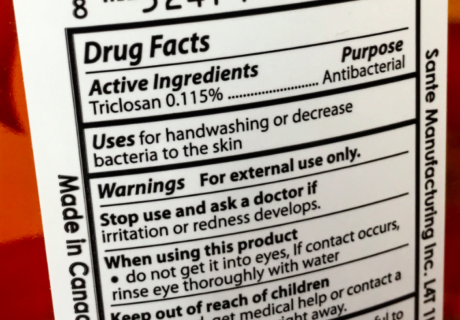The EU should increase investment in organic agriculture and use it as a field ‘laboratory’ for the development of sustainable and healthy food production.
That’s one of the main policy recommendations contained in a major new study commissioned by the European Parliamentary Research Service, the European Parliament’s in-house research department and think tank.
The study also says that organic food and farming can play a vital role in reducing pesticide exposure and tackling antibiotic resistance. And it suggests that potentially valuable lessons can be drawn from the healthier lifestyles associated with organic food consumption.
The study – entitled ‘Human health implications of organic food and organic agriculture’ – was commissioned to help MEPs make more informed decisions about food and health. It focuses on the effect of organic food on public health which, EPRS says, has remained an underinvestigated topic.
The 90-page report examines research into a range of health impacts of organic food, contrasted with conventional – from pesticide exposure to prenatal development, nutritional composition to antibiotic resistance.
Putting the study into context, EPRS says that the development of environmentally sustainable and healthy food systems is now an international priority. But while there is a growing body of research supporting organic farming’s environmental benefits, the think tank says that “very few studies .. have directly investigated the effect of human health”.
The study notes that “dietary patterns” commonly seen among organic consumers – for example, higher consumption of fruit and vegetables and wholegrains, and lower consumption of meat – are associated both with important health benefits (reduced risk of type 2 diabetes and cardiovascular disease among them) and environmental sustainability. So, EPRS is calling for further research to evaluate if organic farming systems can “serve as an example of a sustainable food system with respect to health and environmental effects”.
The study says that organic has a key role to play in a number of important human health areas. For example, the report’s authors says that organic is proven to “substantially” decrease dietary pesticide exposure. Given the concern over especially vulnerable groups such as pregnant women, they argue that greater adoption of pesticide-free plant protection systems could serve as a template for transitioning down on pesticide use.
The study also says organic has a potentially major role to play in tackling the global antibiotic resistance crisis. The authors note that the World Health Organization has identified antibiotic use in animal production as a major contributor to the problem. The study says that organic farming’s very restricted use of antibiotics in livestock production offers a way to minimize the risk of antibiotic resistance, and it says that “knowledge dissemination between conventional and organic production may be an important step in reducing the use of antibiotics overall”.
“knowledge dissemination between conventional and organic production may be an important step in reducing the use of antibiotics overall”
The study looks in depth at the impact of production systems on the nutritional composition of food. Looking at animal-based foods, the authors report that organic milk has been been found to have approximately 50% higher levels of desirable omega-3 fatty acids and that a similar effect has been observed in meat (although they point out that meat and dairy contribute a minor proportion of dietary omega-3s). The study says there are also compositional differences between between organic and conventional plant based foods (especially the level of particular phenolic compounds), although they are less pronounced than with animal foods.
The study says that organic consumers have less dietary exposure to cadmium (which has been linked to higher breast cancer risk), which builds up in soil treated with chemical fertilizers. The authors say this issue is “highly relevant to human health and deserves further investigation.”
Positive policy proposals to benefit everyone
The EPRS study concludes with five policy options:
1 No action. The study says that taking no action would mean missing an opportunity to address some major public health issues – pesticide exposure, bacterial antibiotic resistance and cadmium exposure among them.
2 Pursue and intensify EU policies for food safety. Here, the study’s authors says that “political support for organic agriculture may to some extent be looked upon as political support for EU food safety policies”.
3. Support organic agriculture by investing in research, development, innovation and implementation. Here, the study advocates investment in organic to turn it into a working “laboratory for sustainable and healthy agricultural practices”.
4. Improve the business of environment of organic agriculture through fiscal instruments. The study says that taxes or fees could be imposed on practices that results in costs to society (intensive chemical based agriculture), or alternatives – such as organic – could be rewarded with environment and health promotion payments.
5. Support sustainable food consumption patterns. Here, the authors say that policy makers should acknowledge that the consumption patterns of organic food consumers tends to be healthier compared to the general population. They comment that the higher cost of organic foods can in itself encourage a greater consumption of plant proteins, which the say “is desirable from the perspectives of human health and environmental health”.





